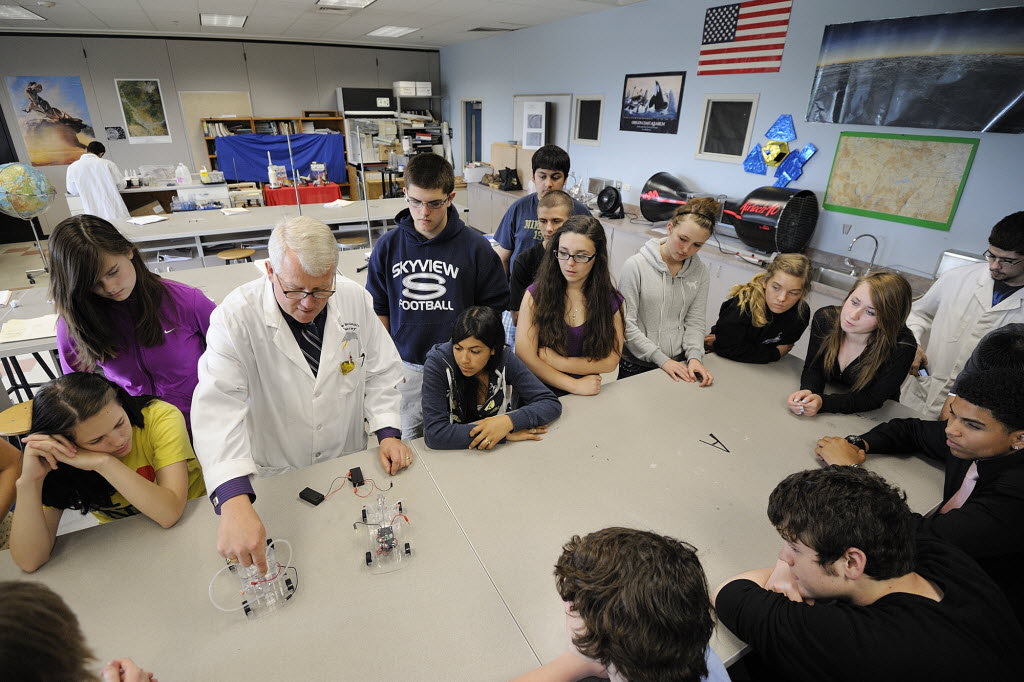TACOMA — A task force trying to find more state money for Washington’s public schools considered possibilities Tuesday that lean heavily on increases in state property taxes.
No one fully endorsed any of the concepts, which come with major hurdles, including securing the supermajorities required to raise taxes in the Legislature and avoiding a veto from the next governor, Democrat Jay Inslee, who campaigned against raising property taxes.
Considering that political landscape, lawmakers may need to submit any taxes to voters.
“For anything to work in Washington state, it’s a conversation with the public, that the public ultimately has to get on board with or they’ll overturn it,” said departing Sen. Lisa Brown, a Spokane Democrat.
The goal of the Joint Task Force on Education Funding has had added urgency since last winter’s state Supreme Court ruling that the Legislature has neglected its duty to fund basic education and must find a dependable source of money.
The panel’s first challenge is to put a dollar figure on what’s needed. There’s broad agreement that that must include extra money for school busing, facilities, all-day kindergarten and reduction of class sizes in lower grades, but other areas don’t have consensus, including pay for educators.
Depending on those decisions, the sum could be $1.1 billion, $1.6 billion or even higher in the two-year budget period starting in
July, ramping up through 2018. That’s on top of an existing $900 million budget shortfall.
Chairman Jeff Vincent, the CEO of Laird Norton Co., put forward three scenarios Tuesday for paying for it all. All would require avoiding the creation of new state programs and the implementation of some unspecified efficiencies, but wouldn’t make major cuts on top of the four years of budget slashing that have left a smaller state workforce.
“In my opinion, there wasn’t a lot of money that I saw that could actually come out of the budget,” Vincent said.
Tax revenue would bridge the gap. The plans would extend temporary taxes passed in 2010 and set to expire next year — one on beer, the other on companies paying the business-and-occupations tax — and two of the plans would extend the sales tax to more services and add a state admissions tax.
But the biggest source of funding would be property taxes. Two of the scenarios include a “levy swap” that would reduce local levies as the state property tax climbs. Lawmakers including House budget chairman Ross Hunter, D-Medina, have spoken in favor of a levy swap, which has the political advantage of being a potentially revenue-neutral solution but the disadvantage of helping property-poor districts at the expense of wealthier districts.
The third scenario would raise the state levy without requiring reduced local levies. It would raise the state tax to $3.60 per $1,000 of assessed value, up from the 2012 rate of $2.40. Legislators would have to rewrite a voter-imposed law that property taxes not increase more than 1 percent per year.
“I don’t think we need to look at this in terms of (a) swap. I think that local school districts will reduce their levies if we actually pay for K-12 education,” said House Majority Leader Pat Sullivan, a Covington Democrat. “I do think that we have to look at the property tax as a potential solution. Looking at lifting that current 1 percent limitation that exists has to be something that we have a conversation about.”
Republicans in the Legislature largely oppose tax increases, saying the money can be found by holding down noneducation spending.
“To me, the message from the voters is clear. They are in no mood, nor do they have the money, to pay for additional taxes, and I don’t care what kind of taxes you’re going to talk about,” said Rep. Cathy Dahlquist of Enumclaw, an alternate member of the committee. Voters renewed the supermajority rule and opposed taxes in two nonbinding votes.
One idea that seems to have some support from a cross-section of the committee is moving school-bus funding to the state’s transportation budget. That presents its own problems, since existing gas taxes are mostly spoken for, but there is some bipartisan support for sending voters a proposal for new transportation revenue.
The group is seeking more ideas from its members and from civic and interest groups for its next meeting. Any suggestions from the public must be submitted by noon on Nov. 30, as the panel enters its final month before the deadline to make a recommendation to the Legislature. Go to Washington State Legislature to submit suggestions.



